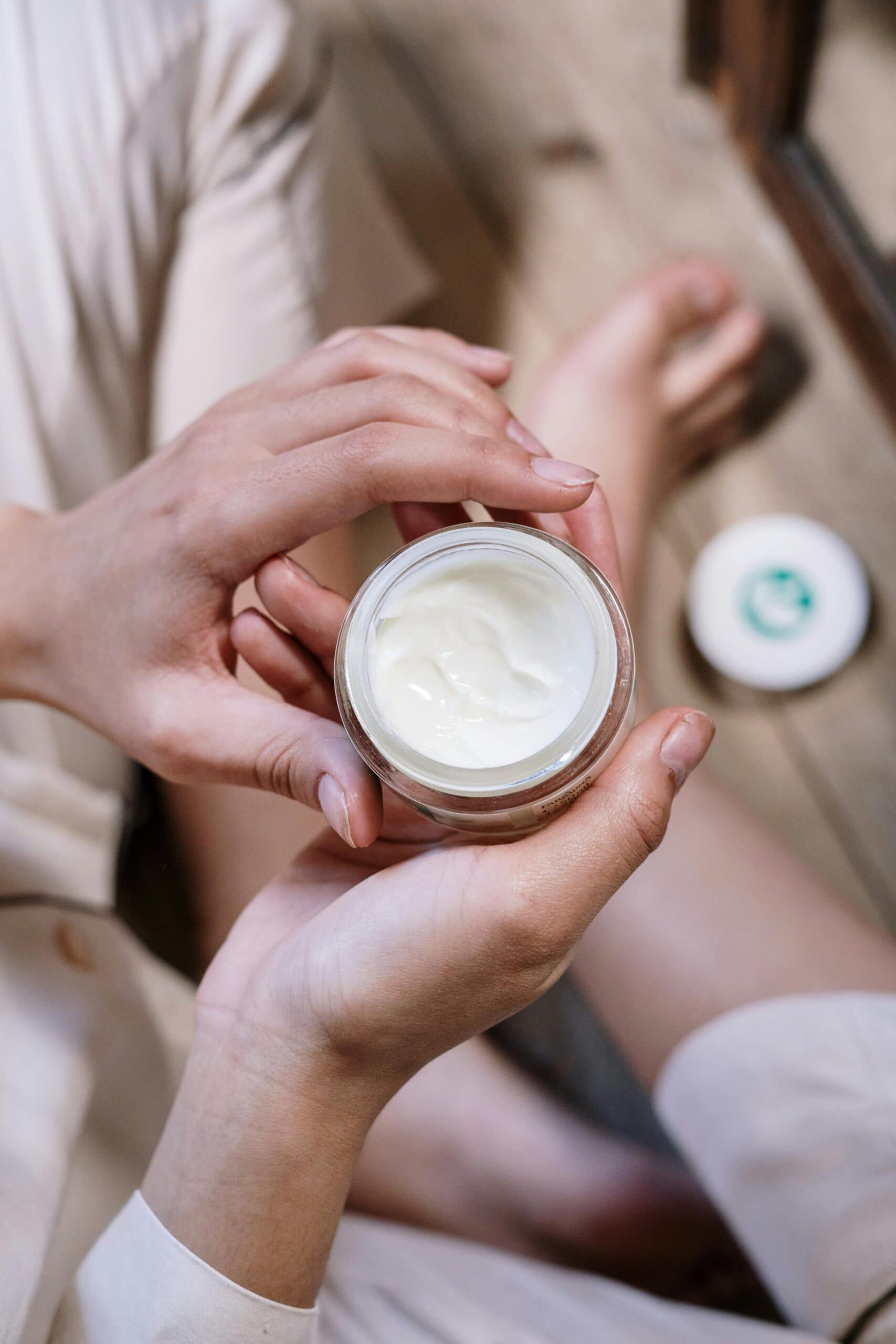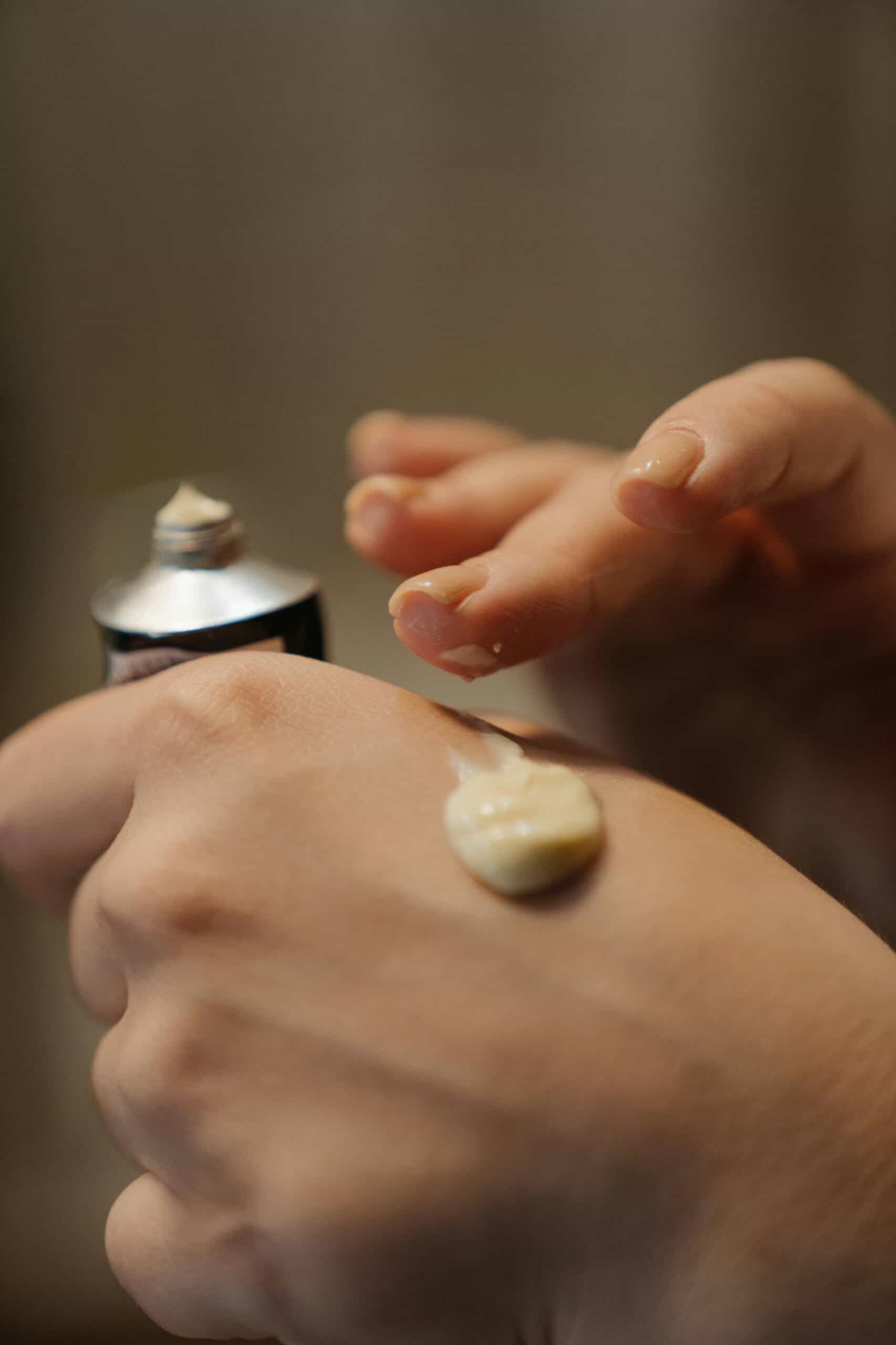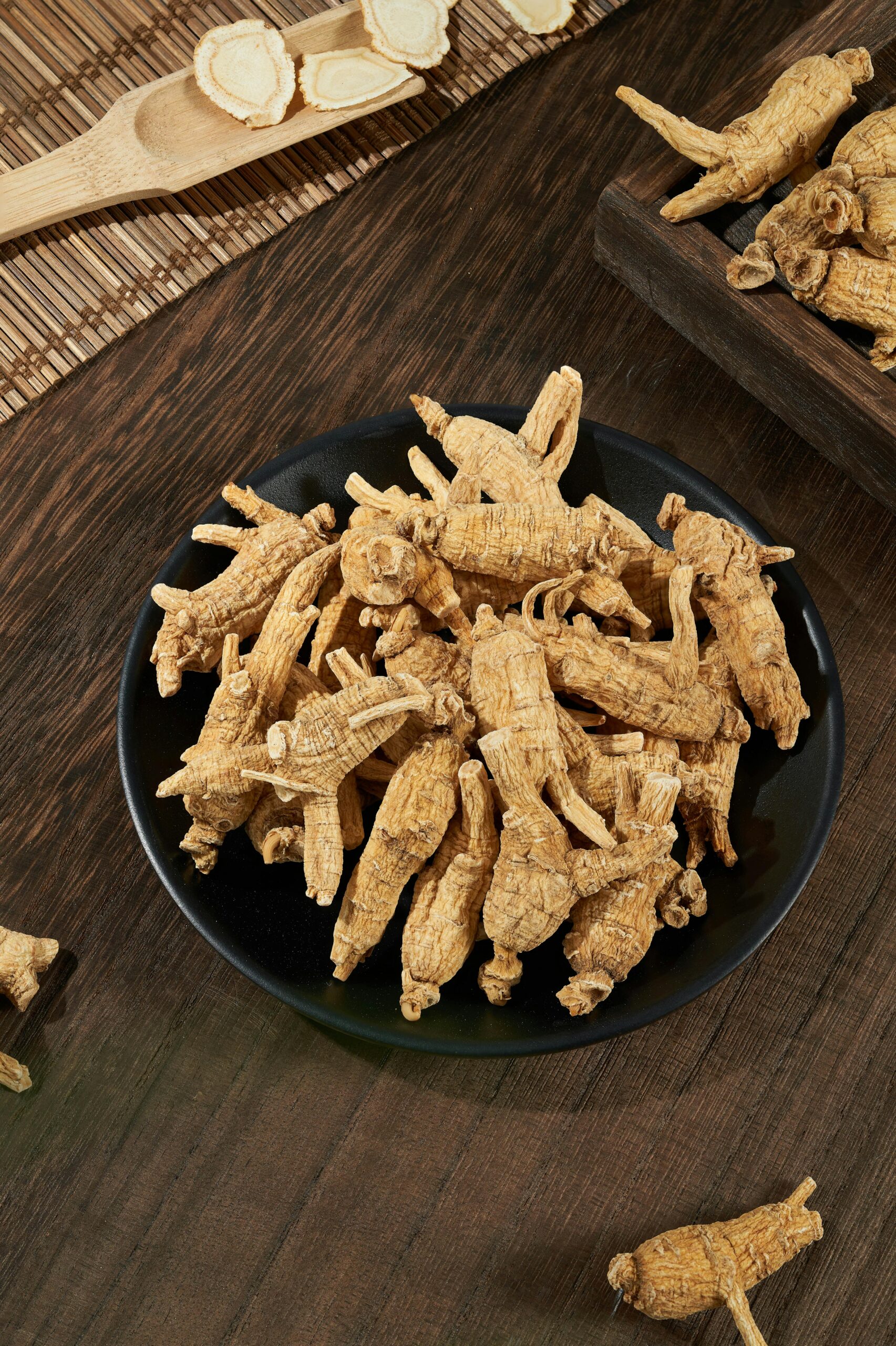Fermented ingredients have become a cornerstone of Korean skincare, offering a unique approach to achieving healthier, more radiant skin. By harnessing the power of fermentation, natural ingredients like rice, green tea, and ginseng are transformed into even more potent skincare additions that deliver enhanced nourishment and absorption.
This process not only tends to boost the concentration of beneficial nutrients but also makes them more bioavailable, allowing the skin to reap maximum benefits. From improving hydration and strengthening the skin barrier to providing anti-aging and soothing effects, fermented ingredients are celebrated for their ability to address a variety of skin concerns.
Understanding how they work, their numerous benefits, and the different types used in skincare can help you choose the right products to elevate your skincare routine.

Jump to:
🤔 What Are Fermented Ingredients?
Fermented ingredients are natural substances—such as plant extracts, fruits, and herbs—that undergo fermentation using microorganisms like bacteria, yeast, or enzymes. This process breaks down larger molecules into smaller, more bioavailable compounds, enhancing their potency and making it easier for the skin to absorb the beneficial nutrients.
In Korean skincare, fermentation is a centuries-old practice inspired by traditional methods used in food preservation, such as kimchi and fermented teas. The fermentation process enriches these ingredients with amino acids, vitamins, probiotics, and antioxidants, which can provide varied benefits for skin health.
Some commonly fermented ingredients in skincare include rice, soybean, ginseng, and green tea, which are believed to promote hydration, improve skin texture, and support a healthy skin barrier. Thanks to their increased bioavailability, fermented ingredients are often considered more effective than their non-fermented counterparts.
💆♀️ Benefits of Fermented Ingredients for Skin
Enhanced Absorption & Nutrient Density
The fermentation process breaks down ingredients into smaller molecular sizes, allowing them to penetrate deeper into the skin. This leads to better absorption of nutrients (or higher bioavailability), making skincare products more effective.
Improved Skin Barrier Function
Probiotics and postbiotics produced during fermentation support the skin’s microbiome, strengthening its natural defense barrier. This helps protect against environmental pollutants, irritation, and moisture loss.
Anti-Aging Properties
Fermented ingredients are rich in antioxidants, type of phytochemical which combat free radicals that contribute to premature aging. Regular use can help reduce fine lines, wrinkles, and dullness, promoting a youthful complexion.
Hydration and Moisture Retention
Fermented skincare products often contain humectants that attract and retain moisture in the skin. This results in long-lasting hydration and a plump, dewy look.
Soothing and Calming Effects
The fermentation process helps eliminate potential allergens and irritants from raw ingredients, making them gentler and more suitable for sensitive or acne-prone skin. Ingredients like fermented green tea and rice extract provide calming effects that reduce redness and inflammation.
Brighter and More Even Skin Tone
Fermented ingredients, such as rice water and ginseng, have natural brightening properties that help fade dark spots, pigmentation, and uneven skin tone over time, leading to a more radiant complexion.
Gentler Formulation
Since fermentation naturally preserves ingredients and enhances their efficacy, fermented skincare products often contain fewer synthetic additives and preservatives, making them a cleaner and more skin-friendly option.

🌾 Types of Fermented Ingredients and Their Uses
Fermented Rice Extract
- Benefits: Brightening, hydration, and improved skin texture
- How It Works: Rich in vitamins, minerals, and amino acids, fermented rice extract helps to brighten the complexion, fade dark spots, and provide deep hydration. It also aids in promoting a smoother, more even skin tone.
- Common Products: Toners, serums, and sheet masks for brightening and hydration.
Fermented Green Tea
- Benefits: Antioxidant protection, soothing, and anti-aging
- How It Works: Packed with polyphenols and anti-inflammatory catechins, fermented green tea provides powerful antioxidant benefits that fight free radicals and reduce signs of aging. It also helps calm irritation and redness.
- Common Products: Essences, toners, and creams for anti-aging and calming effects.
Fermented Ginseng
- Benefits: Anti-aging, revitalization, and improved elasticity
- How It Works: Fermented ginseng enhances the skin's elasticity, reduces fine lines, and boosts radiance by delivering antioxidants and improving circulation.
- Common Products: Serums, ampoules, and creams targeting mature skin.
Fermented Soybeans (Natto Extract)
- Benefits: Deep hydration, firming, and strengthening the skin barrier
- How It Works: Rich in enzymes, amino acids, and collagen-boosting properties, fermented soybeans provide intense hydration and promote a youthful, plump appearance.
- Common Products: Moisturizers and anti-aging serums for hydration and firmness.

Fermented Yeast (Galactomyces)
- Benefits: Skin renewal, oil control, and radiance
- How It Works: Fermented yeast helps to improve skin texture, regulate oil production, and enhance skin luminosity. It is also known to promote a healthy skin barrier by increasing moisture levels.
- Common Products: Essences and toners for hydration and brightening.
Probiotics (Lactobacillus & Bifida Ferment Lysate)
- Benefits: Strengthens the skin barrier, calms sensitivity, and improves resilience
- How It Works: Probiotic fermentation introduces beneficial bacteria that support the skin’s microbiome (yes, it's a thing), reducing sensitivity and enhancing the skin's natural defense against environmental stressors.
- Common Products: Moisturizers and serums for sensitive and acne-prone skin.
Fermented Fruit Extracts (Pomegranate, Apple, etc.)
- Benefits: Brightening, exfoliation, and nourishment
- How It Works: The fermentation of fruit extracts enhances their vitamin and enzyme content, helping to gently exfoliate dead skin cells and nourish the skin with antioxidants.
- Common Products: Exfoliating toners and face masks for gentle renewal.
Fermented Honey and Propolis
- Benefits: Antibacterial, moisturizing, and healing
- How It Works: Fermented honey and propolis provide antibacterial properties that help with acne while deeply nourishing and healing the skin barrier.
- Common Products: Serums and spot treatments for acne-prone or dry skin.

✔️ Tips for Choosing the Right Fermented Products
Identify Your Skin Type and Concerns
Determine whether your skin is dry, oily, combination, or sensitive. Different fermented ingredients cater to specific needs—for example, fermented green tea is ideal for oily skin, while fermented ginseng works well for more mature skin.
Check the Ingredient List
Look for products where fermented ingredients are listed among the first few ingredients, indicating a higher concentration. Be wary of formulas with added artificial fragrances or alcohol, which might counteract the benefits.
Opt for Trusted Brands
Choose well-established skincare brands known for their high-quality fermentation processes. Brands with transparent ingredient sourcing and clinical testing can provide more reliable results.
Look for Complementary Ingredients
Fermented ingredients work well with hydrating agents like hyaluronic acid, soothing ingredients like centella asiatica, and brightening agents such as niacinamide. Selecting products that combine these elements can enhance results, though always introduce new products carefully and slowly.
Check for Allergens and Sensitivities
While fermentation can make ingredients gentler, it's still important to patch-test new products to avoid potential irritation or allergic reactions, especially if you have sensitive skin. Begin with one product, such as an essence or serum, and observe how your skin reacts before incorporating additional items.

Prioritize Packaging
Fermented ingredients are sensitive to light and air exposure. Look for products in airtight, opaque packaging to preserve their potency and prevent oxidation.
Choose According to Season
Lighter fermented essences and toners work well in hot and humid climates, while richer creams and ampoules can provide extra nourishment during colder months.
Read Reviews and Recommendations
Learning from others' experiences, especially those with similar skin concerns, can provide insights into a product's effectiveness and potential results for those with skin similar to yours.
❓ Frequently Asked Questions
Yes, fermented ingredients are generally well-tolerated by sensitive skin because the fermentation process breaks down raw ingredients into smaller, more bioavailable compounds, making them gentler and easier to absorb. However, it's always recommended to patch-test any new product to ensure it doesn't cause irritation or allergic reactions.
Results can vary depending on the product, skin type, and consistency of use. Generally, noticeable improvements in hydration and texture can be seen within a few weeks, while benefits such as brightening and anti-aging effects may take a few months of regular use.
Yes, fermented products can complement a variety of active ingredients like hyaluronic acid, niacinamide, and peptides. However, it's best to avoid combining them with strong exfoliants (such as high concentrations of AHAs/BHAs) or retinoids in the same routine to prevent potential irritation.





Comments
No Comments